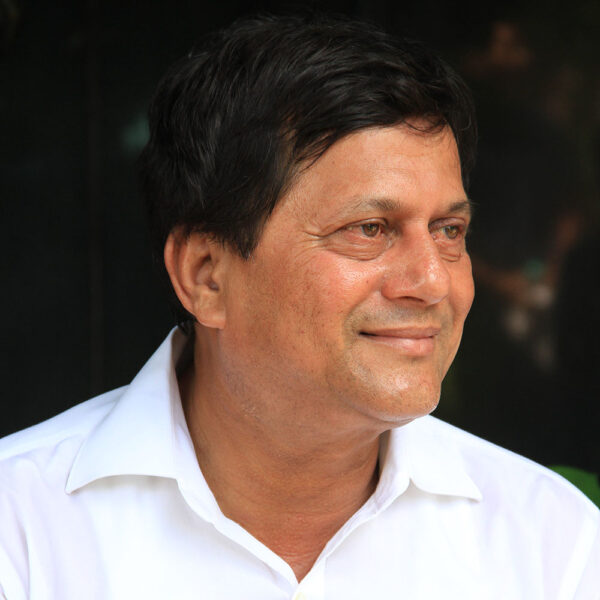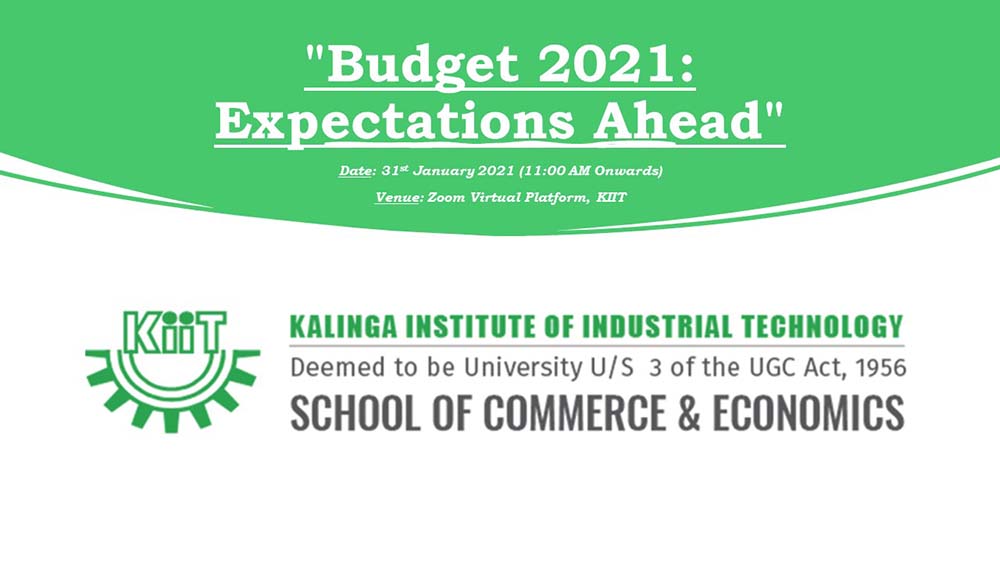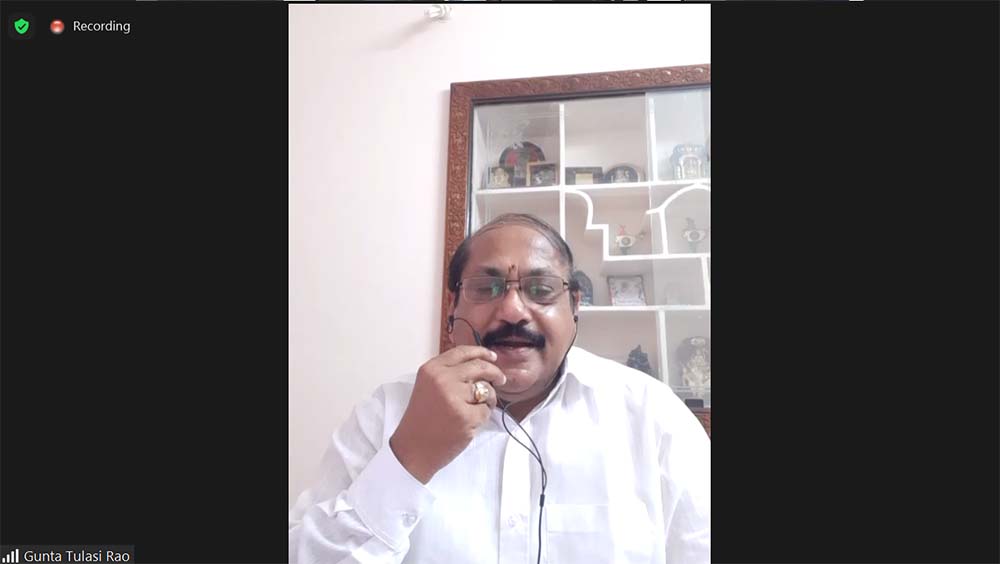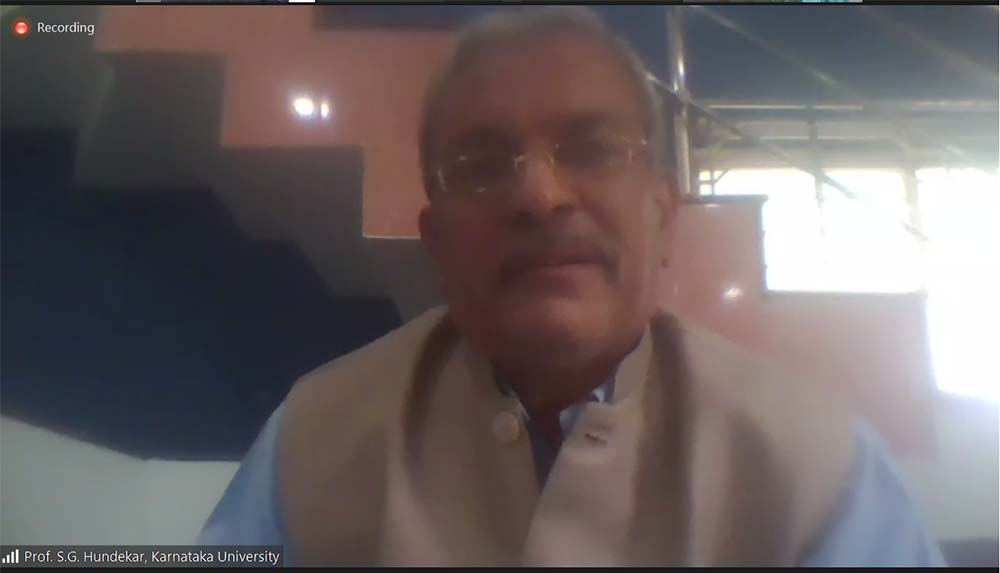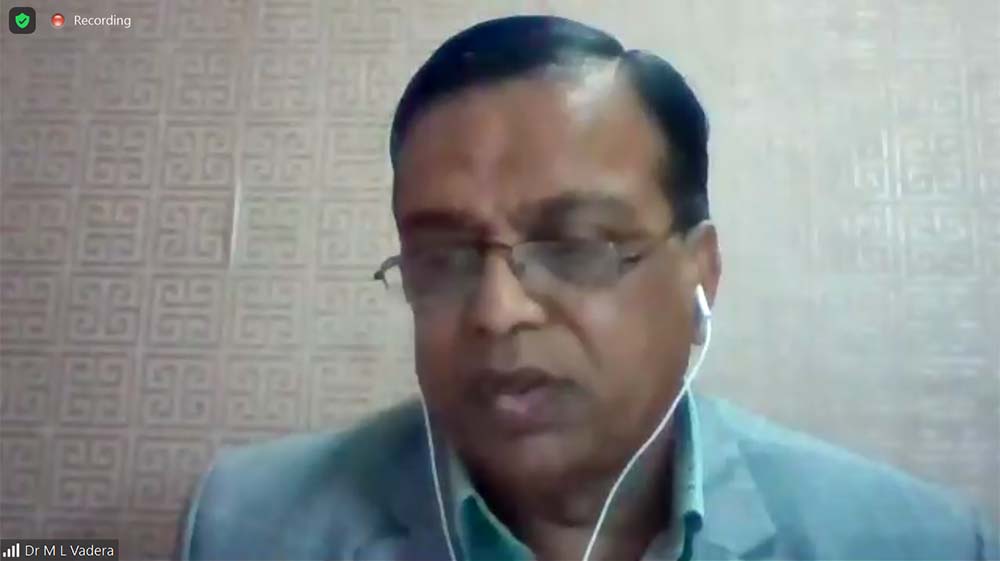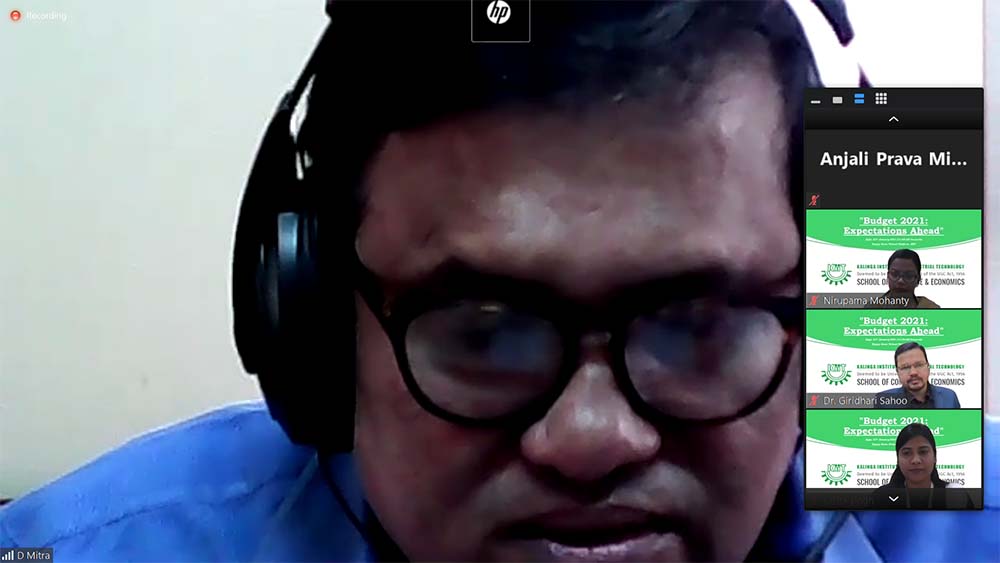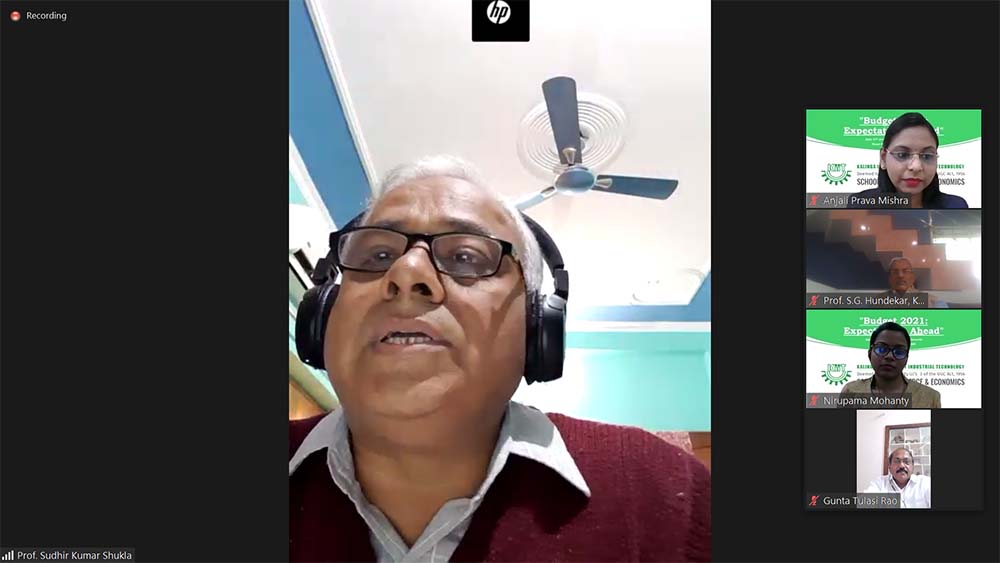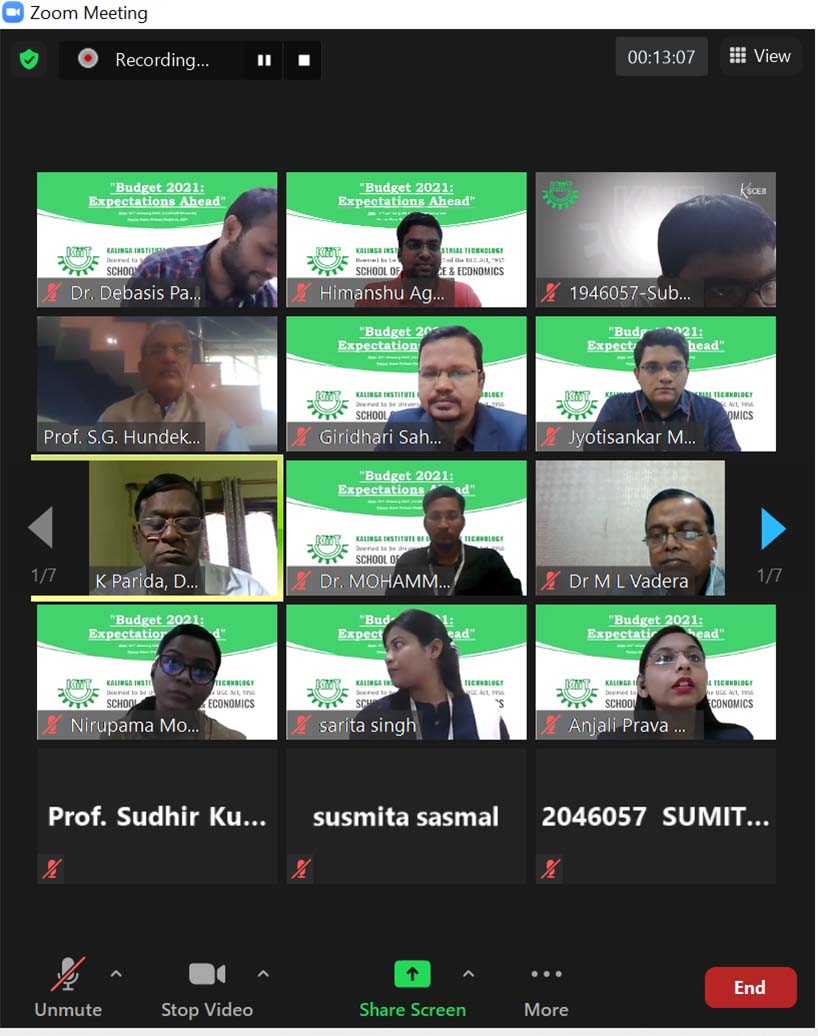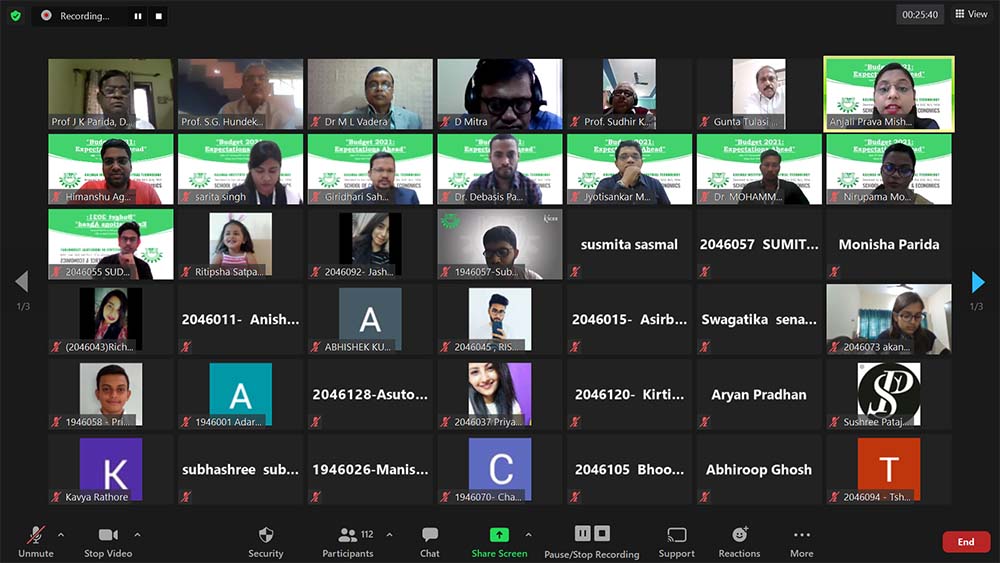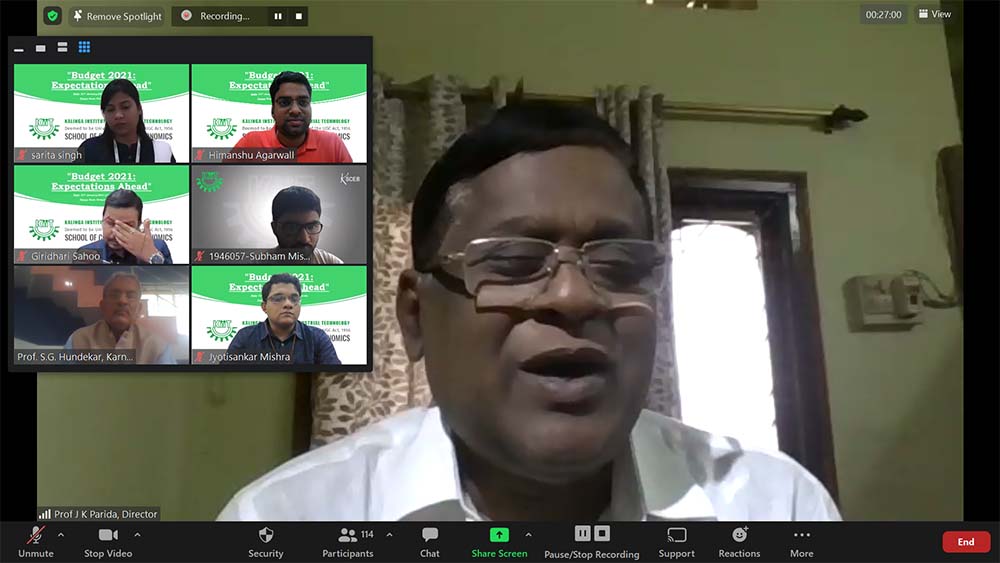School of Commerce & Economics, KIIT University, as a matter of practice has always tried to strive for the best, since it’s inception. It has always been the attempt of the School to make its student market-fit and industry oriented. As a part of that process, the School organized a Webinar on the theme “Budget 2021- Expectations Ahead” on 31st January 2020 (Sunday) to discuss and deliberate on the expectations and aspirations of new India from the Budget-21, which will be presented on 1st February 2021 in the Parliament by Honorable Finance Minister, Government of India.
The program started with the Welcome address by Prof (Dr.) Jayanta Kumar Parida, Honorable Director, School of Commerce & Economics, KIIT University. Congratulating School of Commerce Economics, KIIT University for organizing such webinar. Prof. Parida highlighted the achievements of the School in such a short period and thanked Prof Sasmita Samanta, Pro-Vice Chancellor, KIIT University for her proactive guidance in development of the School. Speaking on the importance of this year’s budget for Indian economy amid the Covid-19 pandemic and global economic slowdown, Prof Parida highlighted some important expectations of academia from the budget, quoting the recently published Economic Survey. He expressed his optimism on increase in the spending on Education sector in the light of achieving the high aims being set by the New Education Policy- 2020. Prof (Dr.) Jayanta Kumar Parida, appreciated the fact that the first budget of this decade is going be the very first paperless budget of India.
Dr G Tulasi Rao, Professor, Dr. B. R. Ambedkar University, Andhra Pradesh, said that he expects the Government will be focusing on the revival of various sectors which are hard hit due to pandemic and economic slowdown. Highlighting the recently announced Rupees One Lakh crore stimulus package being announced for Banking Sector, Prof Rao said that the focus of Government should be curbing the Non-Performing Assets (NPA) problems which are bludgeoning for quite some time now.
Prof. S.G.Hundekar joining the webinar from Karnataka University said that the education and health care sectors should get the highest priority. He said that the pandemic showed us how ill prepared our healthcare facilities are. So we have no options left but to spend more on the sector. Prof. Hundekar also highlighted that to bank upon the demographic dividend of India, now its time when we must shift our priority from Gross Enrollment Ratio to inculcation of vocational skills in Education sector. He also expressed his expectation that public investment, especially in the infrastructure sector will find a significant space in Budget 2021.
Speaking on the expectations from Budget- 2021, Prof. M.L.Vadera, Professor & Advisor, Vyas Institute of Higher Education, Rajasthan highlighted the expectations of the middle-class Indian society. He touched upon various issues starting from the increase in the exemption limit in income tax, reducing the tax burden on consumer durable etc.
Prof. Debabrata Mitra from University of North Bengal speaking on the various expectations of the taxpayers highlighted the various sections under Chapter VI(A) of the Income Tax Act, where he expected to see further relaxation for common people. Prof Mitra reiterated that this budget is going to be a revival one becoming a watershed movement to give impetus to the Indian economy.
Prof. Sudhir Kumar Shukla, Mahatma Gandhi Kashi Vidyapith, Uttar Pradesh spoke on the expectations from the business fraternity focusing the hospitality sector and manufacturing sector, which were hit the hardest because of the lock-downs and shut-downs in the most parts of the country amid the Covid-19 spread. Prof. Shukla expected some strong policy measures through Budget-2021 and ease in GST in bringing back the economy on track.
The Program ended with the proposal of vote of thanks, by Dr Debasi Pahi on behalf of School of Commerce & Economics, KIIT University, to all the resource persons, guests and participants. All the students & faculty members of the School and people from academia participated in the program.

